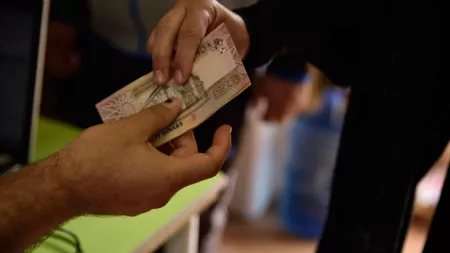The Hague, Netherlands, 18 September 2023 – 93% of the climate finance reported by wealthy countries between 2011 and 2020 was taken directly from development aid, new research from CARE has found, potentially threatening the progress of the Sustainable Development Goals.
At COP15 in 2009, wealthy countries promised to provide “new and additional finance” to the value of $100BN USD a year by 2020 to support the global South with their climate change adaptation and mitigation efforts.
But CARE’s report, Seeing Double, found that in total only 7% of reported climate finance was additional to the long-standing international commitment made by wealthy countries to provide 0.7% of their GNI as official development assistance (ODA).
“This sleight of hand means that the majority of climate finance is development finance in disguise. Money is being diverted towards climate change action, but at the expense of financial support for health, education, women’s rights, and poverty alleviation," said John Nordbo, report author and Senior Climate Adviser at CARE Denmark.
"This was not the agreement in 2009 when it was clearly stipulated that climate finance was meant to be additional to existing funds for development. The idea that support for climate activities can be a substitute for investment in poverty alleviation is dysfunctional, deceitful, and unjust. The reality is that the increasingly harsh effects of climate change are putting additional pressure on development agendas in the global South,” concluded Norbo.
Because there is no formal definition of “new and additional” the Seeing Double report uses two definitions:
(1) The amount of climate finance that has been provided on top of the long-standing international commitment made by wealthy countries to provide 0.7 percent of their GNI as official development assistance (ODA).
(2) The amount of climate finance provided on top of the level of development finance the wealthy countries contributed in 2009, the year of the COP15 climate finance commitment. Even by applying the latter more lenient definition of “new and additional”, over half (52%) of the global North’s public climate finance is still development finance being diverted towards climate change.
“If money continues to be double counted as both development and climate finance, then progress towards both development and climate goals will continue to be too slow. The injustice is that women and children are suffering from the impacts of a climate crisis they did nothing to create, and they will pay the price," said Chikondi Chabvuta, CARE’s Regional Advocacy Adviser for Southern Africa.
She added: "Development activities have to be future-proofed against the realities of our changing climate because less wealthy nations are experiencing an increased frequency and magnitude of climate impacts and are unable to cope, let alone thrive. Official development assistance is urgently needed to fight poverty, and in order for communities to build resilience, climate finance must be additional and targeted for adaptation and loss and damage.”
CARE’s research found that 16 of the countries assessed failed to surpass the 0.7% ODA target in any of the last 10 years, therefore providing no strongly new and additional climate finance at all.
Only three countries (Luxembourg, Norway, and Sweden) have consistently surpassed the commitment to provide 0.7% of their GNI as ODA as well as providing large per capita amounts of climate finance.
The findings come as leaders gather for the 2023 Sustainable Development Goal Summit in New York, marking the halfway point to the deadline set for achieving the 2030 Agenda and the Sustainable Development Goals. The finance required for SDG investments is vast and needed urgently, with efforts to reach the SDGs hampered by COVID-19 and the war in Ukraine. Without deliberate policies to accelerate progress towards the SDGs, the UN estimates that by 2030 at least 492 million people will be left in extreme poverty in Africa alone.
In April 2022, the Intergovernmental Panel on Climate Change said it was “essential” that climate financing was “new and additional” and “not at the cost of the SDGs.”
If global leaders are truly committed to a shared blueprint for peace and prosperity, wealthy countries must deliver on their commitment to providing climate finance contributions on top of their support for development, complementing developing countries' own efforts and investments.
For media inquiries, please contact Juliet Perry, Communications Lead, CARE Climate Justice Center, via [email protected].
